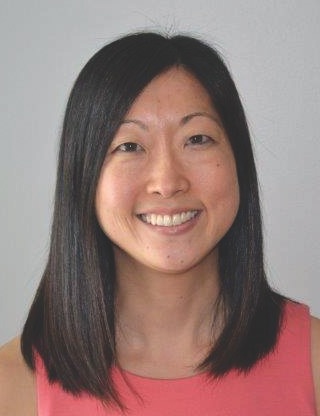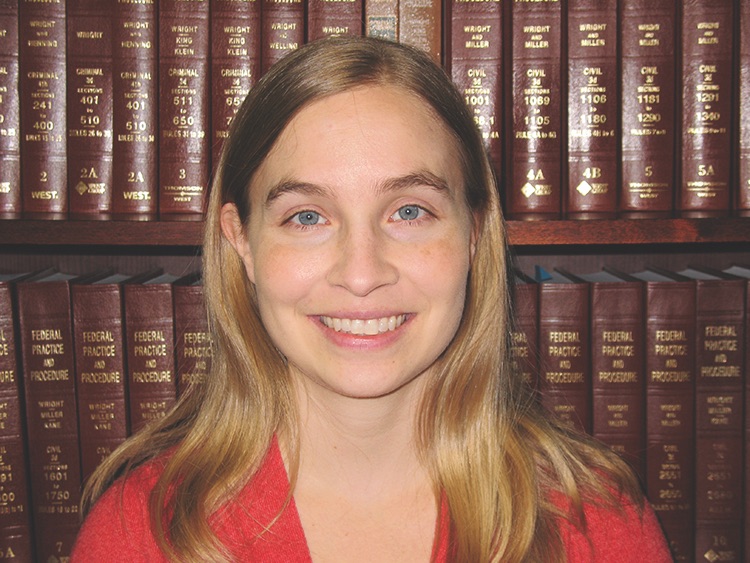Joann Yoon Kang 02L
In her role as policy lead for the Division of Unintentional Injury Prevention at the CDC in Atlanta, Georgia, Kang puts into practice every day the skills she honed working with the Atlanta Volunteer Lawyers Foundation (AVLF) as an EPIC Grant recipient in 2001. “Working with AVLF was such a great opportunity for me, since the primary reason I applied to law school was to work within the realm of domestic violence,” says Kang. “The work I did with AVLF was challenging, because I saw firsthand and up close the difficult issues that my clients had to face. Yet, that experience taught me how the law can be used to help protect and promote the well-being of individuals, which translates to the work I do today at the CDC. At AVLF, I learned how to distill the complexity of the law into language that allows the client to understand what is happening - skills I continue to use today. It was an amazing experience and absolutely helped to direct the trajectory of my career in the law, first as a public interest lawyer for five years and then transitioning into public policy.”
Caitlin Berberich 06L
When Berberich came to Emory Law, she knew she wanted to practice poverty law and work with Spanish-speaking populations, but she was unclear on what type of law she should pursue. “My EPIC Grant in 2004 was to work for the Farmworker Rights Division of the Georgia Legal Services Program (GLSP),” Berberich recalls. “GLSP represents migrant farmworkers in primarily employment-related issues. It felt like a perfect fit for what I wanted to do, and I developed a strong interest in employment law and for farmworker rights. Most people have no idea of the egregious working and living conditions endured by farmworkers. Representing farmworkers is important and meaningful work, and that summer experience significantly influenced my career. After law school, I went on to work as an attorney at Southern Migrant Legal Services, a project of Texas RioGrande Legal Aid Inc., where I continue to work today.”
Laura Settlemyer 08L
As the first director of Blight Remediation for Hartford, Connecticut, Settlemyer relies heavily on her legal expertise - gained during her two EPIC Grant experiences and nearly a decade of work as a lawyer - to design and implement policy. “With my first EPIC Grant (2006), I worked for the Pro Bono Partnership of Atlanta, which connects volunteer attorneys with nonprofits to provide business legal services,” Settlemyer remembers. “My second EPIC Grant (2007) was with the American Constitution Society for Law & Policy in Washington, DC. When I think about those EPIC Grant experiences - working with nonprofits and attorneys serving disadvantaged and underserved populations in Atlanta and gaining a deeper understanding of the design of law and policy in DC - there is certainly a connection between the work I do today in designing and implementing equitable policies to address vacant and abandoned properties and the work I did during those two summers.”
JoAnna Smith 14L 14PH
Smith was a 2013 and 2014 EPIC Grant recipient and worked in the Family Law and Domestic Violence Unit of the Legal Aid Society of the District of Columbia. “I represented clients in protective order and child support cases. It felt amazing to use the law for good,” Smith explains. “But there were many people we couldn’t serve, either because they didn’t meet the income qualifications or because there just wasn’t capacity.” This experience had such a profound impact on Smith that she began her own sliding-scale family law practice, Anderson, Rupani & Smith. The firm serves Georgians who do not qualify for free legal services but cannot afford traditional legal representation. Says Smith, “I am eternally grateful for the EPIC Grant, and I want other students to have the same opportunity to become involved in public interest work.” Smith’s law firm is sponsoring the EPIC Inspiration Awards for the second year in a row.
Lukas Alfen 19L
Alfen will focus his career on serving clients in public education. A recipient of an EPIC Grant in the summer of 2017, Alfen worked for the US Department of Education’s Atlanta office, supporting its Office for Civil Rights. “That experience showed me how important civil rights work is to achieving educational equity in our country,” explains Alfen. “Enforcing statutes that protect vulnerable students’ right to an excellent education is critical to overcoming the disparities between communities. This past fall, I was able to continue my work through an externship with the Atlanta Legal Aid Society, and this spring, I will work in the Legislative Advocacy Clinic of Emory’s Barton Child Law & Policy Center. I hope to apply what I learn from these experiences to the work I will do this summer with the Educational Opportunities Section of the US Department of Justice.”









